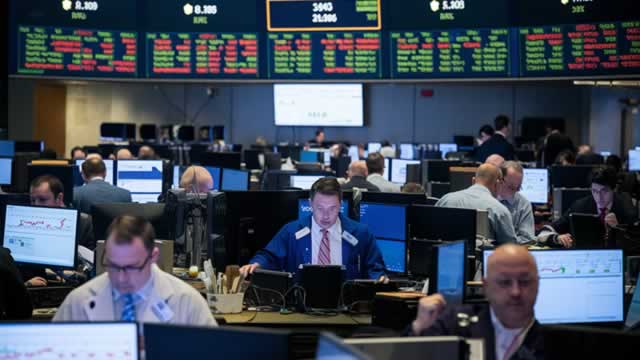The Impact of Tariff Policies on Global Markets: A Deep Dive
The global financial landscape has undergone significant changes in the first few months of 2025. Amidst these shifts, one trend that has dominated headlines is the hit taken by equity markets due to the tariff policies of a new administration. After a promising rebound last week, stocks are once again deep in the red, raising concerns about the long-term implications of this economic policy.
The Market’s Current State
As of now, major indices like the S&P 500 and the Dow Jones Industrial Average have experienced substantial losses. The S&P 500, for instance, is down by over 10% from its all-time high, while the Dow Jones Industrial Average has seen a similar decline. These drops represent a significant setback for investors and could signal a larger trend in the market.
The Effect on Individual Investors
For individual investors, the current market volatility can be a source of anxiety. Those with a long-term investment horizon may choose to stay the course, but those closer to retirement or with short-term investment goals might be more affected. It’s essential to remember that market downturns are a natural part of the economic cycle and historically have been temporary. However, it’s crucial to have a well-diversified portfolio and to consult with a financial advisor before making any major investment decisions.
- Consider rebalancing your portfolio to maintain a proper asset allocation.
- Review your investment goals and time horizon.
- Consider seeking advice from a financial advisor.
The Effect on the Global Economy
Beyond individual investors, the impact of tariffs on the global economy could be far-reaching. Trade tensions between major economies could lead to a slowdown in international trade, which could negatively affect global economic growth. Furthermore, higher tariffs could lead to inflation, which could further erode purchasing power and potentially lead to a recession.
- Slowdown in international trade
- Potential for inflation
- Possible recession
Looking Ahead
As the situation unfolds, it’s essential to stay informed and to avoid making hasty investment decisions. History shows that markets eventually recover from downturns, but it’s crucial to be prepared for potential volatility in the short term. Furthermore, keeping a diversified portfolio and maintaining a long-term perspective can help mitigate the impact of market fluctuations.
In conclusion, the tariff policies of the new administration have had a significant impact on global markets, with major indices experiencing substantial losses. The effects of these policies extend beyond the financial markets, potentially impacting the global economy as a whole. Individual investors should consider rebalancing their portfolios, reviewing their investment goals, and seeking advice from a financial advisor. As the situation continues to evolve, staying informed and maintaining a long-term perspective will be crucial.





